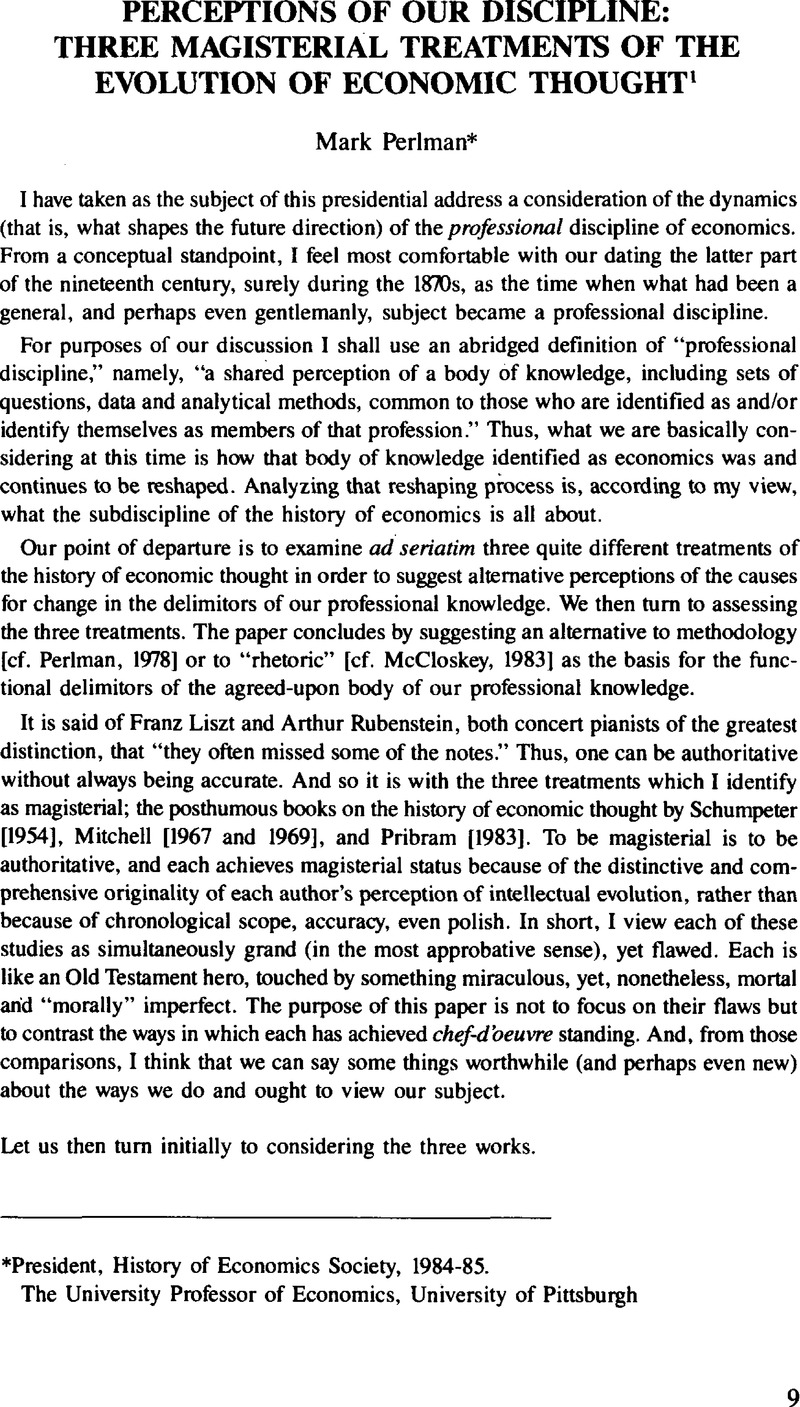Crossref Citations
This article has been cited by the following publications. This list is generated based on data provided by Crossref.
Perlman, M.
and
Welzel, P.
1991.
Book reviews.
Journal of Evolutionary Economics,
Vol. 1,
Issue. 1,
p.
86.
Perlman, Mark
1993.
E. Roy Weintraub. Stabilizing Dynamics: Constructing Economic Knowledge. New York: Cambridge University Press (1991), x + 177 pp. $39.50..
Philosophy of Science,
Vol. 60,
Issue. 4,
p.
669.
Khalil, Elias L.
1995.
Has Economics Progressed? Rectilinear, Historicist, Universalist, and Evolutionary Historiographies.
History of Political Economy,
Vol. 27,
Issue. 1,
p.
43.
Edwards, José
Giraud, Yann
and
Ledezma, Ivan
2024.
THE HISTORY OF ECONOMICS SOCIETY BULLETIN AND JOURNAL OF THE HISTORY OF ECONOMIC THOUGHT (1979–2023).
Journal of the History of Economic Thought,
Vol. 46,
Issue. 4,
p.
636.
Marcuzzo, Maria Cristina
and
Zacchia, Giulia
2024.
THE HISTORY OF ECONOMIC THOUGHT FROM THE VIEWPOINT OF HES PRESIDENTIAL ADDRESSES.
Journal of the History of Economic Thought,
Vol. 46,
Issue. 4,
p.
622.



